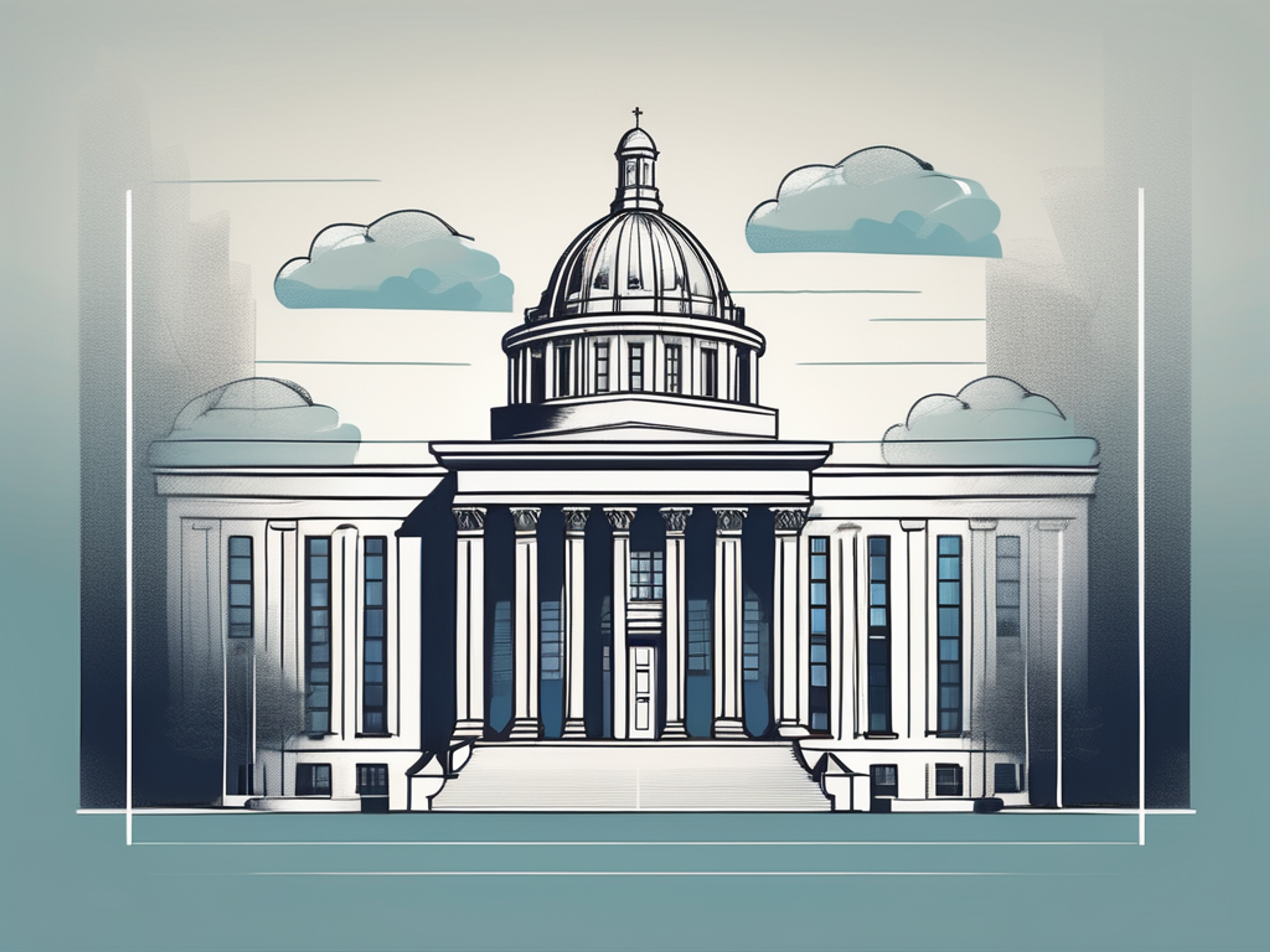
Table of Contents
Columbia Business School offers a prestigious PhD program that prepares students for careers in academia and industry. This comprehensive program equips students with the necessary skills and knowledge to become successful researchers and thought leaders in their respective fields. In this article, we will provide an in-depth overview of the program, including its structure, admission requirements, specializations, faculty, and career prospects.
Overview of the Structure of the PhD Program
The PhD program at Columbia Business School is designed to be rigorous and intellectually challenging. It consists of a core curriculum that provides students with a solid foundation in business theory and research methods. Additionally, students have the flexibility to choose from a wide range of specializations that align with their research interests.
When it comes to pursuing a PhD at Columbia Business School, students can expect a program that is both demanding and rewarding. The curriculum is carefully crafted to ensure that students acquire the necessary knowledge and skills to become successful researchers and scholars in their chosen field.
One of the key features of the program is its core curriculum, which covers essential topics in business and management. These courses are designed to provide students with a comprehensive understanding of foundational concepts and theories. For instance, students will delve into microeconomics, macroeconomics, statistics, and research methodology. By mastering these subjects, students are equipped with a strong theoretical framework and the necessary quantitative skills to conduct cutting-edge research.
Core Curriculum of the Program
The core curriculum of the PhD program covers essential topics in business and management such as microeconomics, macroeconomics, statistics, and research methodology. These courses provide students with a strong theoretical framework and equip them with the necessary quantitative skills to conduct cutting-edge research in their chosen field.
Microeconomics, for example, explores the behavior of individuals and firms in the marketplace. Students will learn about concepts such as supply and demand, market equilibrium, and consumer behavior. This knowledge is crucial for understanding how businesses operate and make decisions in a competitive environment.
Macroeconomics, on the other hand, focuses on the overall performance of the economy. Students will study topics such as economic growth, inflation, unemployment, and fiscal policy. This understanding of macroeconomic factors is essential for analyzing the broader implications of business decisions and policies.
Statistics and research methodology courses provide students with the necessary tools to collect, analyze, and interpret data. Students will learn various statistical techniques and research design principles that are fundamental to conducting empirical research. These skills are invaluable for PhD students as they embark on their own research projects.
Duration and Schedule of the Program
The PhD program at Columbia Business School typically takes 4-5 years to complete. The program is offered on a full-time basis and follows a structured schedule, with students being required to complete coursework, engage in research projects, and collaborate with faculty members. The program's schedule is carefully designed to ensure that students have ample time to pursue their research interests and contribute to the scholarly community.
During the first few years of the program, students will primarily focus on coursework. This period allows students to build a solid foundation in their chosen field and explore different research areas. As students progress in the program, they will gradually transition into more independent research work.
Research projects are an integral part of the PhD program. Students will have the opportunity to collaborate with faculty members and contribute to ongoing research initiatives. This hands-on experience not only enhances students' research skills but also allows them to make meaningful contributions to their field of study.
Furthermore, the program encourages students to actively engage with the scholarly community. This can involve attending conferences, presenting research findings, and publishing papers in academic journals. By participating in these activities, students gain exposure to the latest research trends and establish themselves as emerging scholars in their field.
What are the Admission Requirements for the PhD Program?
Admission to the PhD program at Columbia Business School is highly competitive. The school seeks candidates who have demonstrated exceptional academic achievements, aptitude for research, and a commitment to intellectual growth. In order to be considered for admission, applicants must meet certain academic qualifications and submit a set of necessary documentation.
At Columbia Business School, the PhD program is designed to cultivate the next generation of business scholars who will make significant contributions to their respective fields. As such, the admission process is rigorous and thorough, ensuring that only the most qualified individuals are selected.
Academic Qualifications
Applicants to the PhD program are required to have a strong academic background, typically including a bachelor's and/or master's degree in business, economics, or a related field. The program values diversity and encourages applications from individuals with different educational backgrounds.
While a degree in business or economics is preferred, applicants with degrees in other fields may still be considered if they can demonstrate a strong foundation in quantitative analysis and research methods. This can be evidenced through coursework, research projects, or publications.
Furthermore, the admissions committee is looking for students who have excelled academically, showing a consistent record of high grades and academic honors. They also consider the reputation of the applicant's previous educational institutions, taking into account the rigor of the curriculum and the competitiveness of the program.
Read: What Do I Need to Apply for an MBA and When Should I Start?
Necessary Documentation
As part of the application process, prospective students must submit a variety of documentation including transcripts, letters of recommendation, a resume, and a statement of purpose. These documents provide the admissions committee with a comprehensive understanding of the applicant's academic and professional background, research interests, and future goals.
Transcripts are an essential component of the application, as they provide a detailed overview of the applicant's academic performance. The admissions committee carefully reviews the courses taken, grades received, and any relevant academic achievements or honors.
Letters of recommendation play a crucial role in the evaluation process, as they provide insights into the applicant's potential for success in the PhD program. These letters should be written by individuals who are familiar with the applicant's academic abilities, research potential, and personal qualities. The admissions committee looks for recommenders who can speak to the applicant's intellectual curiosity, analytical skills, and ability to contribute to the field of study.
A resume is required to provide a comprehensive overview of the applicant's professional and academic experiences. It should include information about previous employment, internships, research projects, publications, and any other relevant activities that demonstrate the applicant's qualifications and potential for success in the program.
The statement of purpose is an opportunity for applicants to articulate their research interests, career goals, and reasons for pursuing a PhD at Columbia Business School. It should be well-written, concise, and demonstrate a clear understanding of the applicant's chosen field of study. The admissions committee looks for applicants who can articulate a compelling research agenda and demonstrate a strong motivation to contribute to their respective fields.
Overall, the admissions process for the PhD program at Columbia Business School is designed to identify individuals who have the intellectual curiosity, academic ability, and research potential to excel in their chosen field. The program values diversity and seeks to attract applicants from a wide range of backgrounds who can contribute unique perspectives and insights to the academic community.
Read: The 3 Most Frequently Asked Questions for Graduate School Admissions
Specializations Offered in the PhD Program
Columbia Business School offers a diverse range of specializations within the PhD program. These specializations allow students to focus their research efforts on a specific area of business or economics, enabling them to make significant contributions to knowledge in their field of interest.
Overview of Business Specializations
Business specializations within the PhD program include finance, marketing, management, accounting, and operations research. Each specialization offers a unique set of courses and research opportunities that cater to students' specific interests and career goals. Students enrolled in these specializations work closely with faculty members who have expertise in their respective fields, gaining valuable insights and guidance throughout their research journey.
The finance specialization, for example, delves into the intricate world of financial markets, investments, and corporate finance. Students in this specialization explore topics such as asset pricing, risk management, and financial modeling. Through rigorous coursework and hands-on research projects, students develop a deep understanding of the complexities of financial decision-making and contribute to the advancement of knowledge in this field.
In the marketing specialization, students delve into consumer behavior, branding, and marketing strategy. They study the latest trends in digital marketing, market research methodologies, and the impact of advertising on consumer choices. By conducting experiments, analyzing data, and collaborating with industry professionals, students in this specialization gain insights into how businesses can effectively reach and engage their target audiences.
The management specialization focuses on organizational behavior, leadership, and strategic management. Students explore topics such as team dynamics, organizational culture, and change management. Through case studies and real-world projects, students develop the skills necessary to lead and manage organizations effectively, making significant contributions to the field of management theory and practice.
Accounting, another specialization offered, delves into financial reporting, auditing, and taxation. Students gain a deep understanding of accounting principles, regulations, and ethical considerations. By conducting empirical research and analyzing financial data, students contribute to the development of accounting standards and practices, ensuring the accuracy and transparency of financial information.
Operations research, the final specialization in the business track, focuses on optimization, decision analysis, and supply chain management. Students in this specialization use mathematical modeling and statistical analysis to improve business processes and make informed decisions. By collaborating with industry partners, students develop innovative solutions to complex operational challenges, enhancing the efficiency and effectiveness of organizations.
Overview of Economics Specializations
In addition to business specializations, the PhD program at Columbia Business School offers a range of economics specializations, including industrial organization, international economics, labor economics, and econometrics. These specializations provide students with a strong foundation in economic theory and empirical analysis, equipping them with the skills necessary to conduct rigorous and impactful research in their chosen area of specialization.
The industrial organization specialization focuses on the study of market structure, competition, and regulation. Students in this specialization analyze the behavior of firms and the impact of market forces on economic outcomes. By conducting empirical studies and theoretical modeling, students contribute to our understanding of market dynamics and inform policy decisions that promote competition and consumer welfare.
The international economics specialization explores the global economy, trade, and finance. Students study topics such as exchange rates, international trade policies, and the determinants of economic growth. Through econometric analysis and theoretical modeling, students contribute to the field of international economics, shedding light on the factors that shape global economic interactions and informing policymakers on issues such as trade agreements and currency exchange rate policies.
Labor economics, another specialization offered, focuses on the study of labor markets, employment dynamics, and human capital. Students in this specialization analyze issues such as wage inequality, unemployment, and the impact of education and training on labor market outcomes. By conducting empirical research and applying economic theory, students contribute to our understanding of labor market dynamics and inform policies that promote inclusive and sustainable economic growth.
Econometrics, the final specialization in the economics track, equips students with advanced statistical and econometric techniques. Students in this specialization learn how to analyze complex data sets, estimate economic models, and test hypotheses. By developing innovative econometric methods and applying them to real-world problems, students contribute to the field of econometrics, enhancing our ability to make reliable economic forecasts and policy recommendations.
Faculty and Research Opportunities
Columbia Business School boasts a world-class faculty who are renowned for their research contributions and expertise in their respective fields. These distinguished professors play an integral role in the PhD program, guiding students through their research projects, offering mentorship, and fostering a collaborative and intellectually stimulating environment.
Introduction to the Faculty
The faculty at Columbia Business School comprises leading scholars and industry practitioners who bring a wealth of knowledge and experience to the program. These individuals have made significant contributions to their fields and are actively engaged in cutting-edge research projects. Students have the opportunity to work closely with faculty members, benefiting from their expertise and guidance throughout their doctoral journey.
Research Opportunities and Facilities
Research is a cornerstone of the PhD program at Columbia Business School. Students are encouraged to engage in independent research projects, collaborate with faculty members, and contribute to the growing body of knowledge in their field of interest. The school provides state-of-the-art research facilities, including access to extensive databases, specialized software, and relevant resources, allowing students to conduct high-quality research and produce impactful scholarly work.
Read more about Columbia Business School Faculty and Researh here.
Career Prospects after the PhD Program
Graduates from Columbia Business School's PhD program go on to pursue successful careers in academia and industry. The rigorous training, research experience, and valuable connections established during the program prepare graduates for a wide range of career opportunities.
Job Opportunities in Academia
Many graduates of the program choose to pursue academic careers, joining prestigious universities and research institutions around the world. As faculty members, they have the opportunity to continue their research, teach future generations of business leaders, and contribute to the advancement of knowledge in their chosen field.
Job Opportunities in Industry
The skills and expertise gained during the PhD program also open doors to exciting career opportunities in the industry. Graduates often find employment in consulting firms, government agencies, and multinational corporations, where their research and analytical skills are highly valued. The program equips students with the tools necessary to tackle complex business challenges, make data-driven decisions, and provide valuable insights to drive organizational success.
In conclusion, Columbia Business School's PhD program provides a comprehensive and rigorous training for students aspiring to become leaders in academia and industry. With its structured curriculum, diverse specializations, world-class faculty, and promising career prospects, the program offers a unique opportunity for individuals seeking to make a meaningful impact in the business and economics field.












